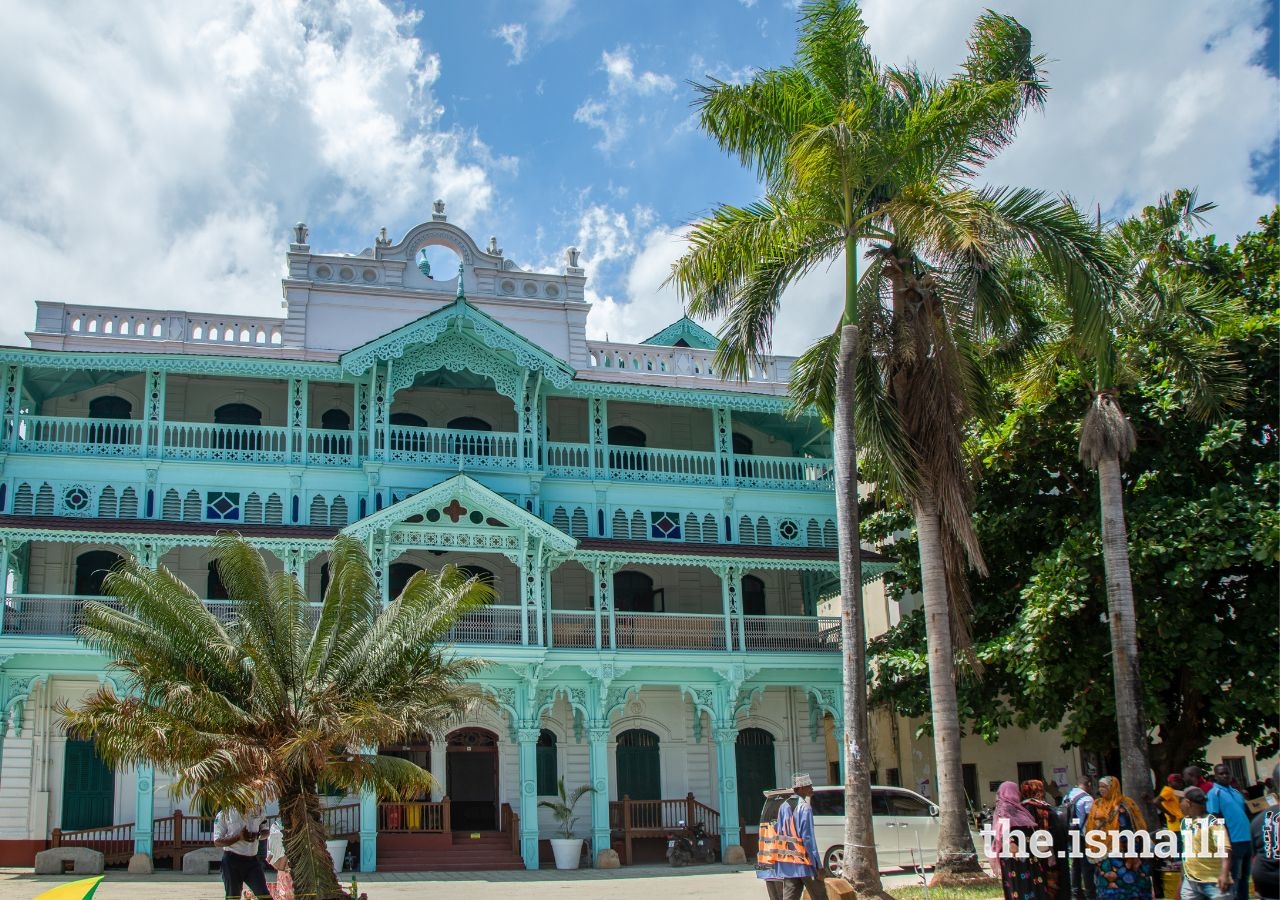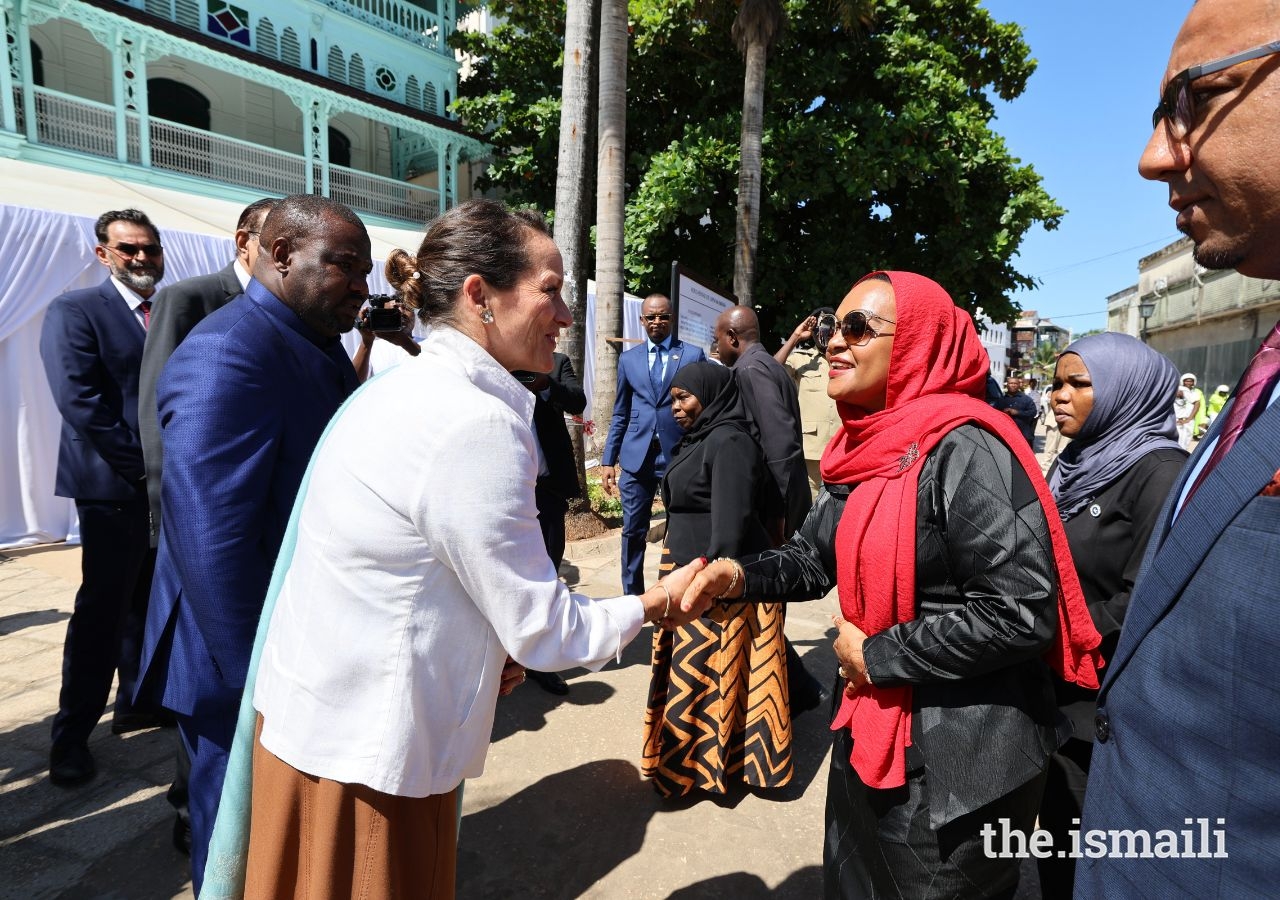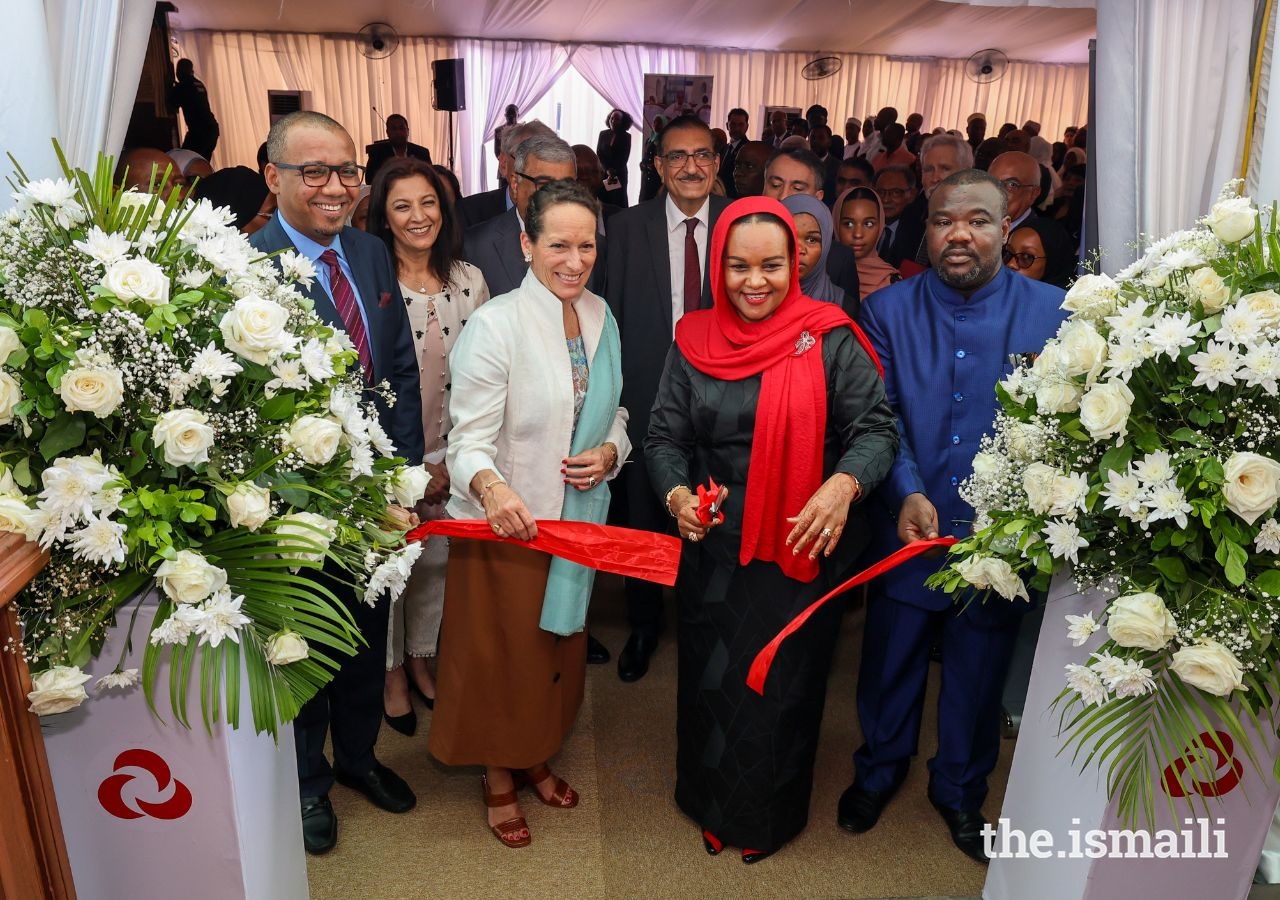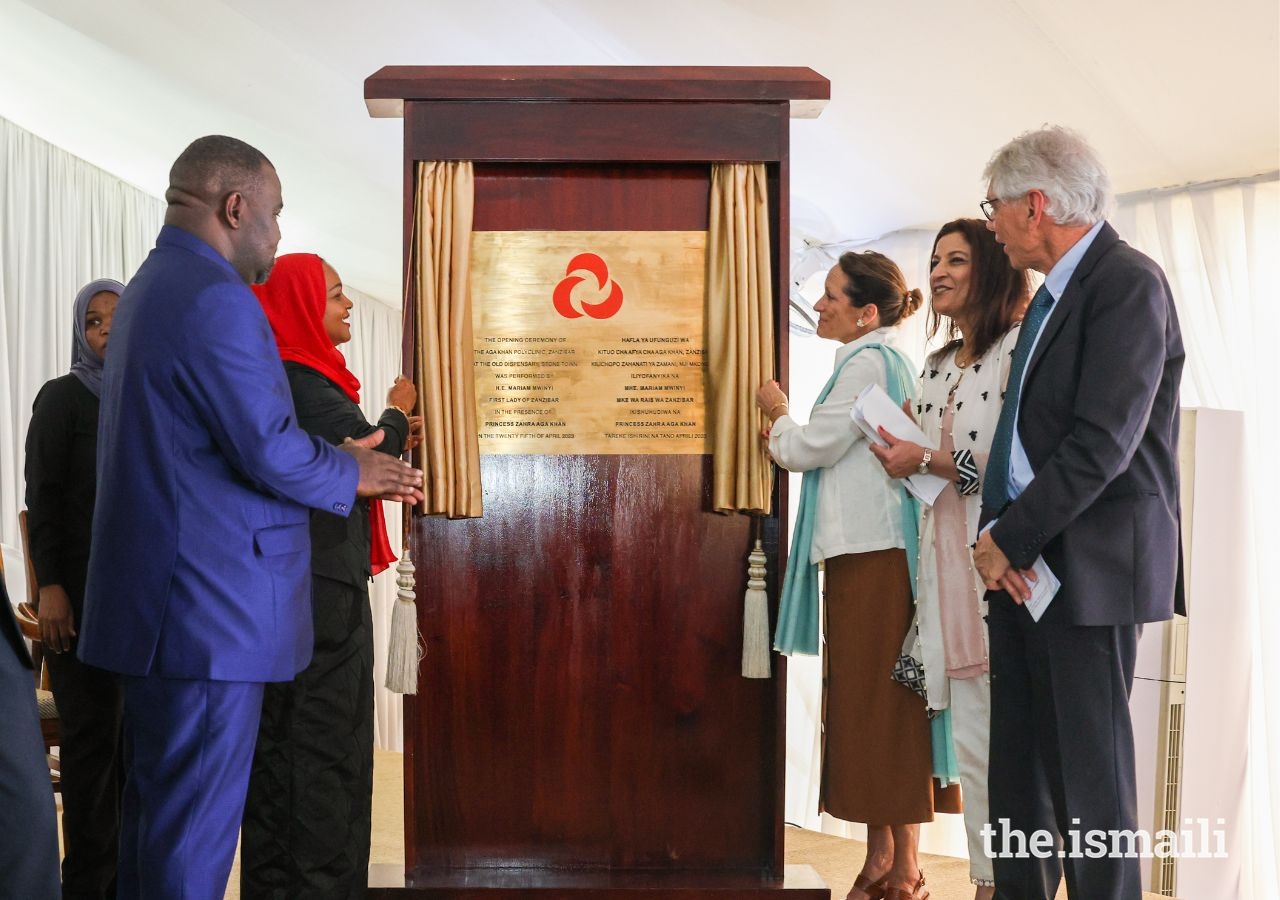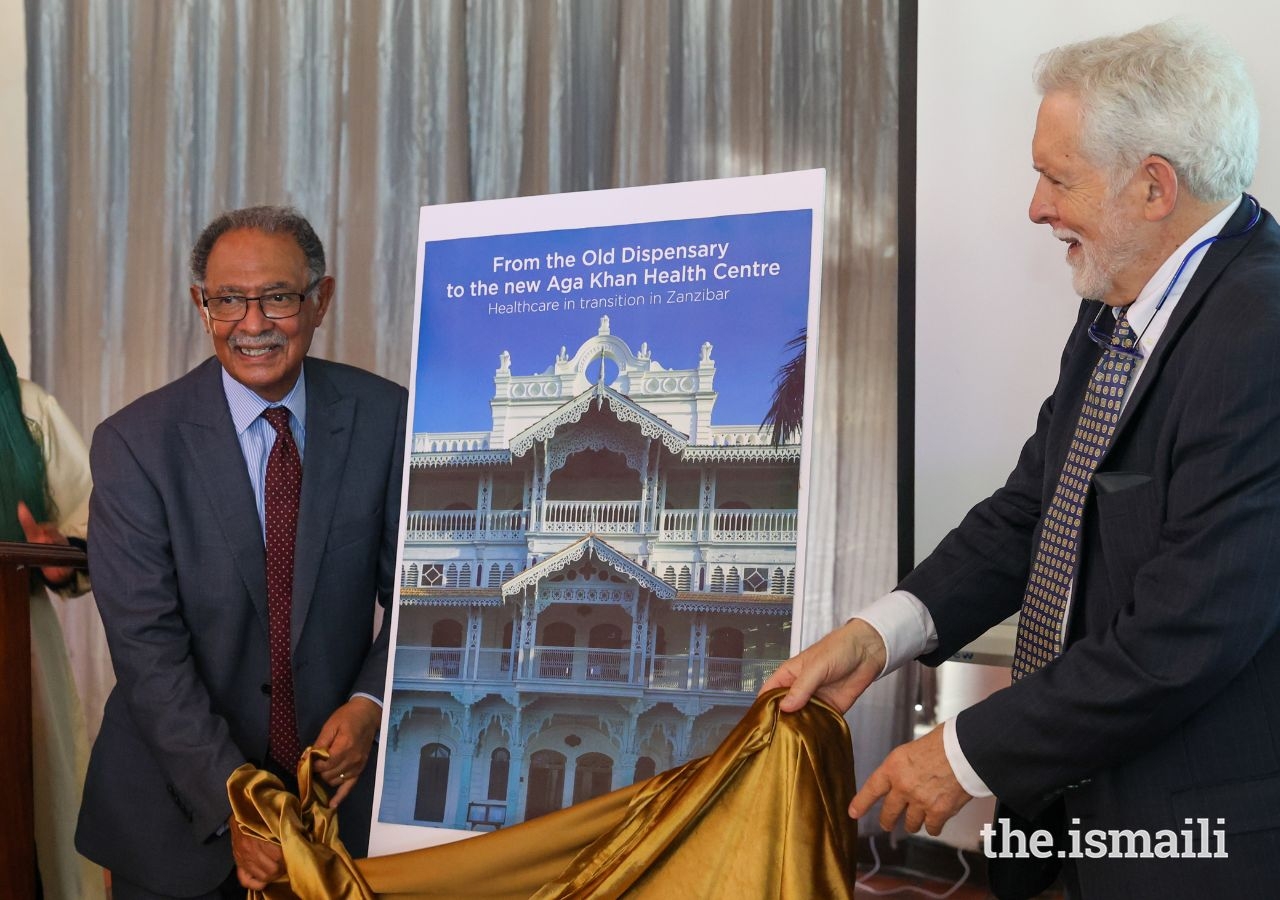The new clinic’s home is the ornate ‘Old Dispensary’ on the waterfront in Zanzibar's historic capital, Stone Town. Originally built by the Ismaili pioneer Sir Tharia Topan in the 1880s to address local healthcare needs at the time, it operated for this very purpose until its takeover by the government in the revolution of 1964. After decades of disrepair, the ornate property was carefully restored to its former glory by the Aga Khan Trust for Culture in the 1990s.
Its story has now come full circle. At the request of the Government of Zanzibar, the Old Dispensary is now a functioning health centre again, after being transferred to the Aga Khan Health Services (AKHS). The inauguration marks a major expansion of AKHS’s outreach programme, aiming to address the island’s complex healthcare challenges today, including high maternal and child mortality rates and the growing prevalence of non-communicable diseases.
“It's wonderful to see this building return to its original purpose,” said Princess Zahra in her address to guests at the event. “The Aga Khan Polyclinic in Zanzibar symbolises our commitment to supporting the Government’s vision for a better tomorrow,” she added.
“By providing affordable, equitable healthcare services, disease prevention and health promotion, the Polyclinic supports the Zanzibar Development Vision 2050, which aims to provide a sustainable universal healthcare system staffed by skilled healthcare professionals and supported by modern medical technologies and facilities.”
Located in the heart of Stone Town, the new clinic is designed to offer a range of services, including emergency and urgent care, enhanced diagnostics, dialysis services, and dentistry. It will also serve as a hub for the provision of specialised care, offering patients high-quality services without having to travel to the Mainland.
One of its remarkable characteristics is the clinic’s presence inside of a listed heritage building, and all the complexities this comes with. All renovations to convert it into a clinical facility honour its legacy: Cutting-edge medical equipment sits alongside intricate 19th-century building features, which remain to this day. The evolving story of the building is recorded in a new publication authored by John Tomaro, former director of health for the Aga Khan Foundation; and Dr Farouk Topan, professor of Swahili culture and grandson of Sir Tharia.
The First Lady of Zanzibar, Her Excellency Mariam Mwinyi, thanked Mawlana Hazar Imam and Princess Zahra “for their exceptional commitment to enhancing the health and wellbeing of communities worldwide and Zanzibar in particular.”
“We recognise and value the relationship of the Government of Zanzibar with the Aga Khan Development Network, which extends over 100 years,” she said.
Illustrating the value of AKHS’s “hub and spoke” model, integrated care will be offered to all through digital health connections with world-class physicians at the Aga Khan Hospital in Dar es Salaam, as well as in-person consultations for specialties, such as cardiology, oncology, neurology, and nephrology with highly-qualified visiting doctors.
The project was made possible with the support of the Government of France, via their development agency, AFD, which works to fight poverty and promote sustainable development in various parts of the world.
“We talk now about the concept of ‘one health,’ said Nabil Hajlaoui, Ambassador of France to Tanzania, “which means that we cannot enjoy good health in France and Europe and the West in general, and not provide the same level to other partners — Tanzanians and sub-Saharan Africans in general are among them, and we are keen to do all our best to be part of this kind of project.”
The comprehensive out-patient centre is equipped with state-of-the-art medical equipment and operated by a team of highly trained family medicine specialists. It is the newest addition to a network of 25 integrated health facilities in Tanzania that last year provided front-line care to more than 1 million people in the country, explained Zeenat Sulaiman, CEO of AKHS Tanzania. The clinic also aims to drive social and economic development on the island by offering employment and skills-building opportunities to local residents.
Stone Town, with its architecture and urban fabric that brings together African, Arab, Indian, and European influences, was designated a UNESCO world heritage site in 2000. Its many fine buildings reflect a uniquely coastal culture. This includes the oldest Ismaili Jamatkhana in Africa, with its famous double doors of ornately carved hardwood and polished brass finishings.
The ultra-modern Aga Khan Polyclinic, housed in a Victorian-era dispensary, adds to this rich legacy — taking inspiration from the past to meet present needs, while envisioning a healthier future. It is therefore a testament to AKDN's long-term commitment and strong partnerships, which open doors to help improve the quality of life in East Africa and beyond.

